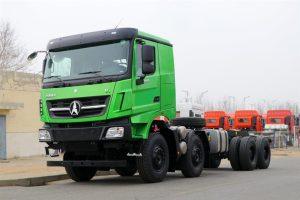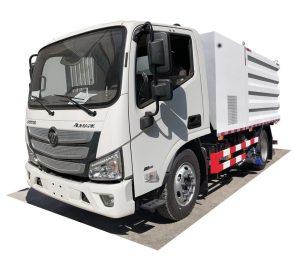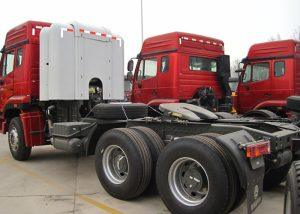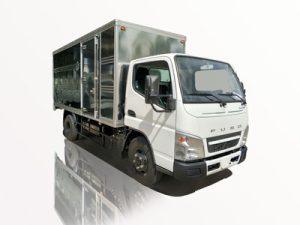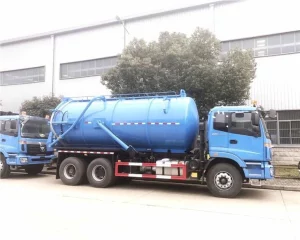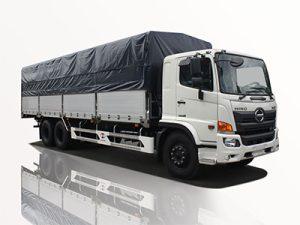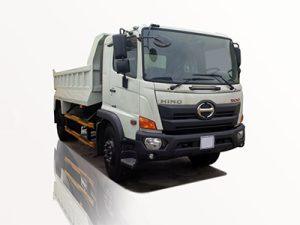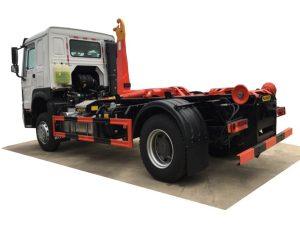Monday to Saturday - 8:00 -17:30
Types of Dumper Trucks: A Comprehensive Guide
Dumper trucks, essential for construction and mining industries, come in various designs tailored for specific tasks. Understanding the different types of dumper trucks is crucial for project managers, operators, and anyone involved in logistics and transportation of materials. This article explores various dumper truck types, their features, uses, and practical examples to help you choose the right one for your needs.
1. Overview of Dumper Trucks
Dumper trucks, also known as dump trucks, are specialized vehicles designed for transporting loose materials. They are characterized by their open-box bed that can tilt to dump its contents. Major uses include construction site operations, mining, and material transport in various industries.
1.1 History of Dumper Trucks
The evolution of dumper trucks dates back to the late 19th century, when the first models emerged as horse-drawn carts. Over time, technological advancements led to the development of motorized versions, significantly enhancing their efficiency and capabilities.
1.2 Importance of Dumper Trucks
Dumper trucks are vital in various sectors as they facilitate the transportation of heavy materials, thus improving productivity and efficiency on construction sites and in mining operations. Their ability to quickly unload materials contributes to streamlined workflows.
2. Different Types of Dumper Trucks
Several types of dumper trucks are designed for specific applications. Here, we break down these types, highlighting their features and typical uses.
2.1 Standard Dump Trucks
Standard dump trucks are the most common and are typically used for general hauling purposes. They feature a cab and a cargo bed that can be raised to unload materials.
Features:
- Available in various sizes.
- Tipper mechanism for easy unloading.
- Fixed cargo beds.
Typical Uses:
- Construction sites
- Road work
- Landscaping projects
2.2 Articulated Dump Trucks (ADT)
Articulated dump trucks have a hinge between the cab and the dump box, allowing for better maneuverability in tight spaces.
Features:
- Articulated design for improved turning radius.
- Off-road capability.
- Higher payload capacity compared to standard models.
Typical Uses:
- Mining operations
- Quarrying
- Heavy construction projects
2.3 Rear Dump Trucks
As the name implies, rear dump trucks unload materials from the back. They are commonly used in construction and mining.
Features:
- Simple unloading mechanism.
- Ideal for level surfaces.
- Available in various sizes and capacities.
Typical Uses:
- Road construction
- Landfill operations
- Heavy material transportation
2.4 Side Dump Trucks
Side dump trucks unload materials to the side rather than the back, offering various advantages in specific job sites.
Features:
- Ability to unload on uneven terrain.
- Efficient for narrow job sites.
- Can carry a mixed load of materials.
Typical Uses:
- Rail yard operations
- Road maintenance
- Landscaping projects
2.5 Semi-Trailer Dump Trucks
Semi-trailer dump trucks consist of a tractor unit and a detachable trailer that can be loaded and unloaded easily.
Features:
- High load capacity.
- Versatile for long-distance hauling.
- Can be configured for different types of loads.
Typical Uses:
- Long-distance construction material transport
- Aggregate delivery
- Waste management
2.6 Off-Road Dump Trucks
Off-road dump trucks are designed specifically for rough terrains and difficult conditions, often used in quarries and mining.
Features:
- Powerful engines for heavy loads.
- Large tires for improved traction.
- Robust construction for durability.
Typical Uses:
- Mining operations
- Quarrying activities
- Earthmoving projects
3. Choosing the Right Dumper Truck for Your Project
Selecting the right dumper truck depends on various factors such as project requirements, operating conditions, and material types.
3.1 Assessing Your Project Needs
Consider the type and volume of materials you need to transport. For lightweight materials, a standard dump truck may suffice, whereas for heavy loads, an articulated or off-road dump truck is more suitable.
3.2 Terrain Considerations
Evaluate the terrain where the dumper truck will operate. Off-road trucks excel in rugged environments, while standard and semi-trailer trucks are better for paved surfaces.
3.3 Budget and Cost Efficiency
Analyze your budget and choose a dumper truck that offers the best cost-to-benefit ratio for your specific operations.
4. Maintenance Tips for Dumper Trucks
Maintaining dumper trucks is essential for operational efficiency and safety. Regular maintenance helps prolong the lifespan of the vehicle.
4.1 Regular Inspections
Conduct weekly inspections of tires, brakes, and hydraulic systems to identify potential issues early.
4.2 Scheduled Maintenance
Follow a maintenance schedule that includes oil changes, filter replacements, and brake inspections at regular intervals to keep the truck in top condition.
4.3 Keep the Dump Bed Clean
Regularly clean the dump bed to prevent material build-up that can lead to corrosion or damage over time.
5. Safety Precautions When Operating Dumper Trucks
Safety is paramount when operating dumper trucks. Operators must be vigilant and follow best practices to prevent accidents.
5.1 Training and Certification
Ensure that operators are properly trained and certified to operate dumper trucks safely.
5.2 Use of Personal Protective Equipment (PPE)
Always wear appropriate PPE such as hard hats, gloves, and high-visibility vests when operating and working near dumper trucks.
5.3 Communication on Job Sites
Establish clear communication protocols among team members to coordinate activities around dumper truck operations and minimize risk.
6. Practical Examples of Dumper Truck Usage
Here are practical examples showcasing the utilization of various types of dumper trucks across different industries.
6.1 Construction Sites
In construction, standard dump trucks are frequently used to transport aggregates, soil, and debris. Articulated dump trucks are preferred for projects with rugged terrains.
6.2 Mining Operations
Off-road dump trucks are essential for transporting mined materials from extraction sites to processing areas, thanks to their robust design and high payload capacity.
6.3 Waste Management
Semi-trailer dump trucks are often used in waste management for transporting recyclables and landfill waste efficiently over long distances.
7. FAQs about Dumper Trucks
7.1 What is the difference between a standard dump truck and an articulated dump truck?
A standard dump truck features a fixed bed, while an articulated dump truck has a hinge allowing better maneuverability and off-road capabilities.
7.2 How do I determine the right size dumper truck for my project?
Consider the volume and weight of the materials, the terrain, and the distance of transportation. Consult with equipment rental services for guidance.
7.3 How often should dumper trucks be maintained?
Schedule regular maintenance every 100 hours of operation, along with periodic inspections, to ensure the truck operates safely and efficiently.
7.4 Are side dump trucks more versatile than rear dump trucks?
Yes, side dump trucks provide versatility in unloading, especially in tight spaces and uneven terrain, as they can unload sideways.
7.5 What types of materials can dumper trucks carry?
Dumper trucks can carry a variety of materials, including soil, gravel, asphalt, demolition debris, and even some types of hazardous waste if properly equipped.
7.6 Can I rent dumper trucks for short-term projects?
Yes, many equipment rental companies offer dumper trucks for short-term projects, providing flexibility for contractors and businesses.


